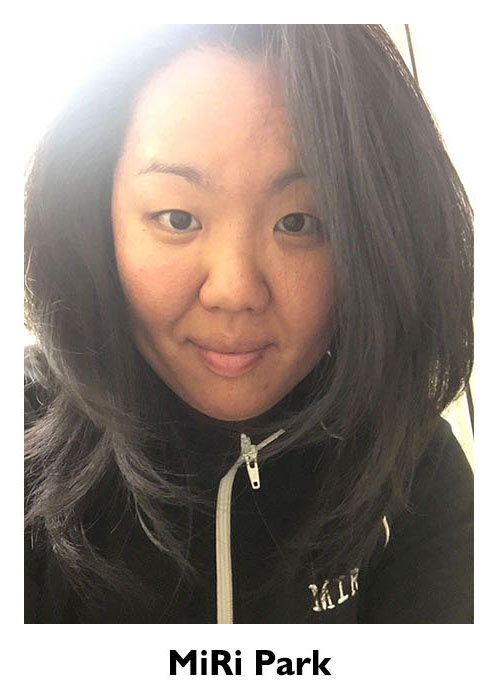 Camarillo, California, Aug. 27, 2020 — A worldwide virtual dance project is among the imaginative concepts that Associate Professor of Performing Arts/Dance Heather Castillo and Performing Arts/Dance Lecturer MiRi Park designed after CSU Channel Islands (CSUCI) switched to online learning.
Camarillo, California, Aug. 27, 2020 — A worldwide virtual dance project is among the imaginative concepts that Associate Professor of Performing Arts/Dance Heather Castillo and Performing Arts/Dance Lecturer MiRi Park designed after CSU Channel Islands (CSUCI) switched to online learning.
The project, called CORontine Corps, along with an online dance instruction guide they created earned Castillo and Park a 2020 Faculty Innovation and Leadership Award (FILA) honoring CSU faculty and/or staff members who have demonstrated extraordinary leadership that advances student success.
When handing out the awards to the 25 honorees across the 23-campus system, the CSU Chancellor’s Office took note of the extraordinary challenges presented by the COVID-19 pandemic that necessitated virtual learning.
“The CSU’s world-class faculty continue to advance bold, creative solutions to enrich student learning, despite the daunting and unprecedented challenges facing higher education,” said CSU Chancellor Timothy P. White. “The awardees have demonstrated brilliance, ingenuity and adaptability, and their steadfast commitment to student success is at the very core of the CSU’s educational mission.”
“We are incredibly honored,” Castillo said. “There are so many amazing and innovative educators in the CSU that inspire me – so to be honored is incredibly special.”
Park and Castillo’s dedication to developing a humanized online learning experience has influenced the way in which the field of dance is taught virtually. Right after the campus switched to online instruction in March because of the pandemic, the two educators created and circulated a guide to their campus colleagues called “Considerations for Moving University Dance Classes Online.”
For the past several years, the University has had to deal with several fires and crises, so when the pandemic came, Park and Castillo already had experience taking classes online.
We found ourselves crisis-teaching and conditioned in ways other campuses haven’t,” Park said. “We were already partially online and we kept thinking about our friends in other dance communities elsewhere and thought, how can we help them? This came from a place of wanting to help others in the university dance community, not because we are experts, but because we were ahead of the curve.”
The guide was so popular, it was picked up and amplified by the Dance Studies Association (DSA) and became a resource for universities throughout the U.S., including Emory University, University of Washington and Barnard College in New York. The duo also hosted webinars to help universities across the globe transition to teaching dance online.
The guide earned them a spot as speakers in the prestigious Christena Lindborg Schlundt Lecture Series in Dance Studies at UC Riverside.
“Heather and MiRi's impact at the onset of our current circumstances will reverberate and continue to help dance educators beyond the pandemic," said CSUCI President Erica D. Beck, Ph.D.
Magic happens when dancers move together in a traditional dance studio, Castillo said, so she worked with Park to recreate a different kind of magic online with the CORontine Corps, in which dance students around the world were invited to submit a recording of themselves dancing during the pandemic, whatever their circumstances.
 Castillo said she is editing together more than 50 submissions she has received from colleges, private studios, dance companies and high schools, to name a few. It’s so popular, she is considering starting another CORontine Corps archive for the fall semester, as dance classes are still online. The entire archive collected this spring and summer will be uploaded on YouTube.
Castillo said she is editing together more than 50 submissions she has received from colleges, private studios, dance companies and high schools, to name a few. It’s so popular, she is considering starting another CORontine Corps archive for the fall semester, as dance classes are still online. The entire archive collected this spring and summer will be uploaded on YouTube.
“We are on the cusp of this paradigm shift because of our virtual immersion in the arts,” Castillo said of online dancing. “It will be cool to look back in five years to see what people did in the original moments when we first went online.”
Park and Castillo are still launching online dance projects, including the CSU Dance Collective, in which dance instructors from various dance programs within the CSU system meet virtually every other Friday to discuss online learning practices they have developed.
The selection committee for the FILA was comprised of faculty and student representatives from the California State Student Association and staff members from the CSU Office of the Chancellor, who reviewed hundreds of nominations to select the awardees.
Awardees receive $5,000, as well as $10,000 allocated to their academic department in support of ongoing innovation and leadership to advance student success at the CSU. Funding for the awards is provided by generous grant support from foundation partners.
